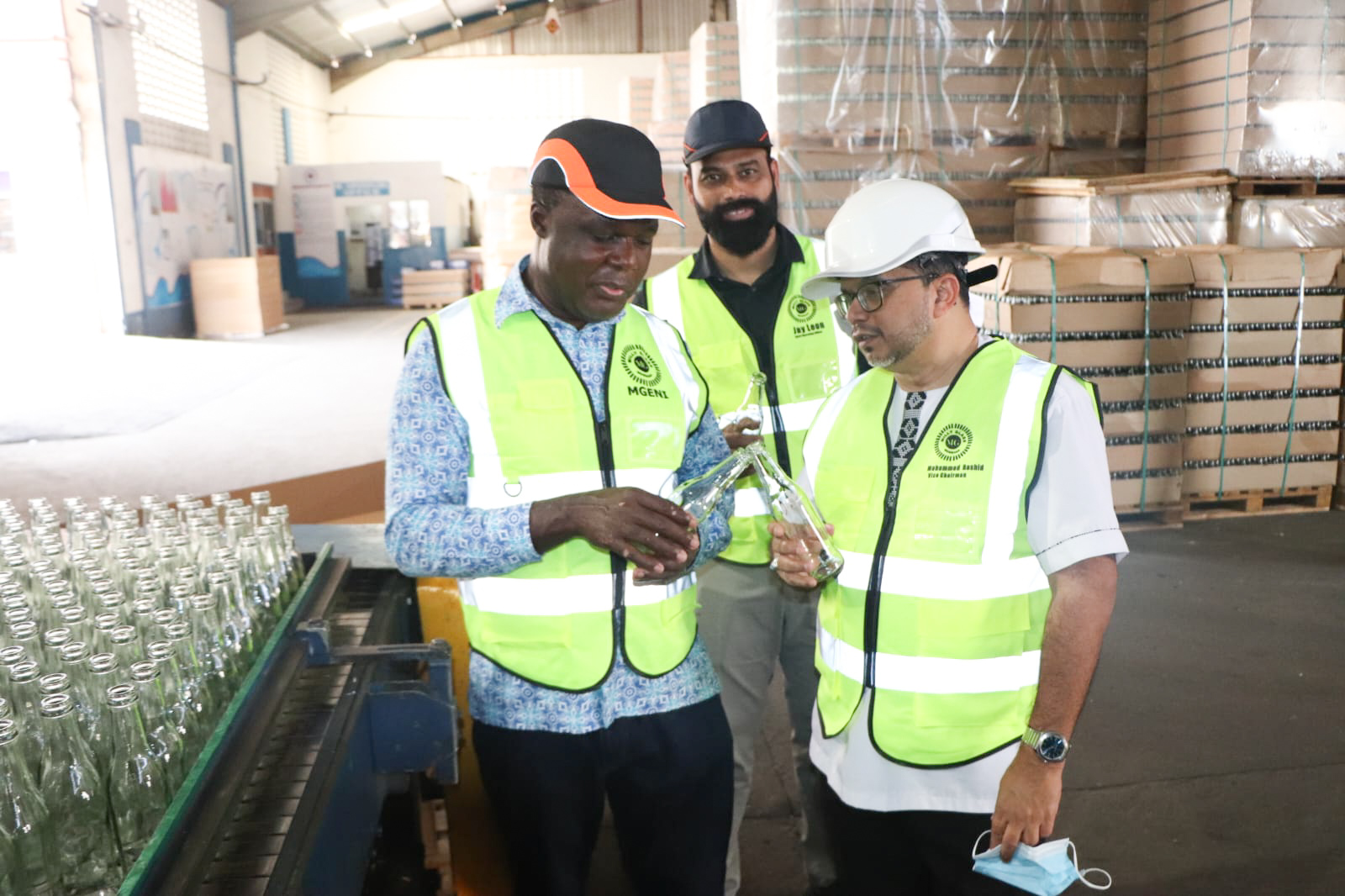The government has downplayed claims that the newly imposed 10pc import levy will kill industries saying that it will rather promote local industries to thrive.
This is according to the Principal Secretary for Industry Dr Juma Mukwhana who said that the government is focused and committed on promoting local manufacturers against importation of products that can be locally produced.
Mukhwana said that the introduction of the 10pc import levy on a number of products produced locally in the Finance Bill 2023 was aimed at supporting local industries.
The PS was speaking in Mombasa after touring the Milly Glass Works Limited in Mombasa, one of the largest glass manufacturing companies in the region.
“We have added in the Finance Bill a duty for people importing things we can make here so that we can encourage those that are manufacturing here to out-compete them.”
“What we are doing as a government is that if you are importing things we can produce here, we will not stop you from importing, but we will put a tax on it to make sure that those who are making it in Kenya out compete you on the prices,” said Mukwhana.
He said that there is no danger of anyone closing down but the danger rather is that more people will now want to invest in Kenya for local production.
Kenya, he said, had already started receiving a lot of interest from investors from Asia, specifically China and India who have expressed interest to set up industries in the country.
Last week, Kenya concluded the Kenya – EU partnership agreement giving Kenya a duty free quarter free market to 27 European Union countries.
“The challenge we have now is that the EU has opened up a big market for Kenya but we don’t have enough things to sell. If we can’t get products here, the only way we are going to satisfy that big EU market of nearly 500 million people is for us to manufacture locally”
“As a country we want to stop exporting raw material, we are now encouraging value addition,” Mukwana said.
The PS added that Kenya is also in the process of concluding the Kenya – UK bilateral agreement, and will also complete the Kenya – US agreement by the end of the year, a move he said was opening more international markets for Kenyan products.
“Kenya is the leading exporter of textile in Africa to the US, we don’t want just to sell them textile, we want to sell coffee, tea, flowers, fruits and even glass,” he said.
He added that Africa is now coming together under the Africa continental free trading area and what it means is that anything made in Kenya can be sold anywhere in Africa but do we have what to sell.
The PS said that as government, they are encouraging industries and discouraging importation saying that the government will not be taxing people manufacturing in Kenya but only taxing those importing so that they help those manufacturing in Kenya manufacture at a cheaper price and to compete those importing so that they sell more in Kenya and the region.
He further challenged the Milly Glass Works Limited to also venture into the production of pharmaceutical bottles since the country imports all its pharmaceutical bottles.
The PS said that every time we import a bottle we are exporting jobs out of Kenya, and as such the government is really encouraging local investors to invest in manufacturing in Kenya.
Kenya, he said, has a big sector of flat glass used for motor vehicle windows and housing yet none of them is produced locally asking local manufacturers to also take up the challenge.
Dr Juma Mukhwana further said that the government was already working on a proposal together with the Energy and Petroleum Regulatory Authority (EPRA) to reduce the cost of power for manufacturers to Ksh10 per kilowatt hours.
The price of electricity currently stands at above Ksh26.87 kWh for both households and businesses.
In January 2023, EPRA raised the inflation adjustment cost to 85 cents per unit from 67 cents per unit, an adjustment that will be in place until the end of June.
This was after the Kenya National Bureau of Statistics (KNBS) announced an inflation rate of 9.0 per cent in January. The rate projected that electricity prices would rise by 78 pc by April.
EPRA already increased the cost of power for ordinary domestic users in June to Ksh28 kWh up from Ksh26 kWh in May.
“As a government, we are already working on a mechanism to lower the cost of power, especially for our manufacturers. EPRA is already working on and has tabled our proposal that we reduce the cost of power for manufacturing to Ksh10 kWh down from what it is today at above Ksh20 kWh,” said Mukhwana.
Kenya as a country he said is not as well-endowed as other East African countries on power because looking at Uganda for example, with Lake Victoria and the Nile they are able to produce a lot cheaper electricity.
Tanzania, he said, because natural gas is also able to produce electricity at a lower cost, unlike in Kenya we are disadvantaged because almost 25pc of Kenya is arable and the rest is arid and semi- arid.
PS Mukhwana said that the government had invested a lot in Wind energy at Loyangalani in Turkana and also in Ngong.
The government pumped Ksh80 billion worth of investment in the embattled Lake Turkana Wind Power project in Loiyangalani expected to generate clean renewable and low-cost wind energy for distribution to the Kenya Power and Lighting Company (KPLC).
He said that the government had plans to start similar projects in Lamu and Tana River counties.
“Our electricity has been very expensive, what we have done as government is that we started in Naivasha where we are using geothermal energy” said Mukhwana.
On the issue of increased VAT on fuel from 8pc to 16pc as passed in the Finance Bill 2023, Mukhwana said that this was occasioned by the removal of subsidies.
He said that when the VAT was at 8 percent, Kenyans were still subsidizing oil marketers the remaining 8pc.
“The government is already taking up measures to ensure we lower the cost of fuel. Through the Government-to-Government agreement with the UAE, Qatar and Saudi Arabia, we are buying fuel in Kenya shillings as opposed to using dollars which made fuel more expensive,” he said.
The vice chairman and director of Milly Glass Works Limited Mohammed Rashid lauded the governments’ initiatives to promote manufacturers and the efforts made to reduce cost of power to enable ease of doing business.
The initiatives he said were in the right direction in the government’s efforts for manufacturing to go to 20 percent of the country’s GDP by 2030.
Rashid said that it is good that the government is interacting more and more with manufacturers and investors in the country.
“Today as investors and manufacturers in the country, we are seeing it happen because when a PS comes to see you and wants to know what you are doing and producing, it’s a move in the right direction
“This has never happened at this magnitude until the last few months where we have seen government officials coming down to ask us what they can do for us to improve manufacturing and industries,” said Rashid.
Rashid said that as local investors, they fully support the government’s agenda to reduce imports so that Kenyans can continue investing more in this country and expanding our industrial base.
He added the cost of electricity has been on the discussion table for a while, and agrees that though there is nothing much that the government can do, they have been trying a lot.





